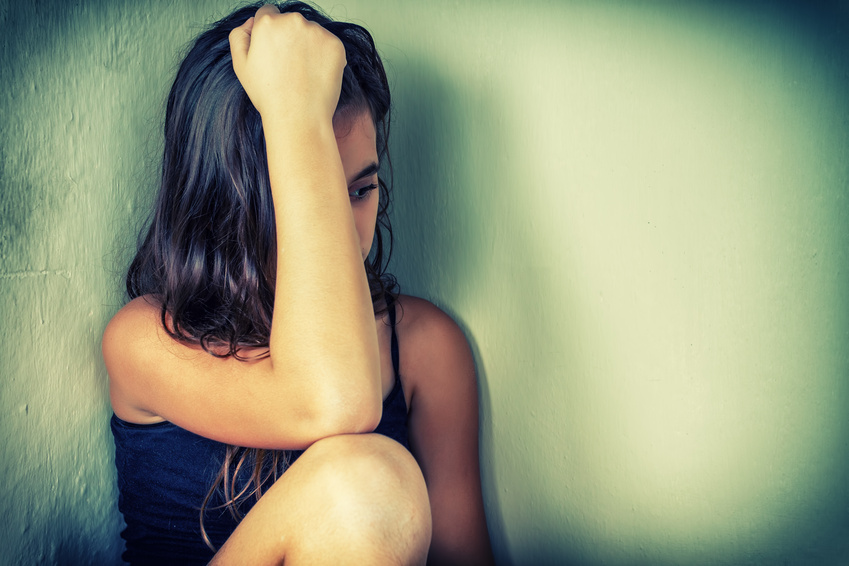 Childhood depression is a serious mental health condition that affects approximately 11% of children and teens up to 18 years of age.
Childhood depression is a serious mental health condition that affects approximately 11% of children and teens up to 18 years of age.
Many parents and teachers may not be aware of the signs of childhood depression since it can look different than depression in adults.
We may typically think of “depression” as extreme sadness and crying spells. However, this type of melancholic sadness is more common in adults, in contrast to the intense irritability seen in children and teens. It is important to keep in mind that “depression” as a diagnosis or mental health condition is very different than everyday reactions to disappointing situations, even though it is common in everyday language to hear someone say, “Oh, I’m so depressed.”
The word “depression” when referring to “clinical” or “major” depression is VERY different than feeling sad about not being able to go to the park because of bad weather or because a favorite TV show is cancelled.
Clinical depression also known as major depression can be very serious and even fatal in the most serious of cases. Those people who suffer from depression know first-hand that it can be highly debilitating with negative consequences on relationships, school, work, and self-care.
You may be asking yourself: “what causes depression?” and “can I help my child or teen if he or she becomes seriously depressed?”
While the exact cause of depression is not clear-cut there can be many factors that contribute to someone becoming clinically depressed. This is the tricky part because it is not as obvious and easy to treat in comparison to a broken bone or even diabetes.
Some risk factors are:
- If a close relative suffers from a mood disorder there can be a higher risk among family members.
- Loss such as death, divorce, medical problems, natural disasters are all stressful events that can bring on feelings of intense sadness. It is important to differentiate grief from depression.
- Medical issues such as hypothyroidism can affect hormones and metabolism.
- Single or repeated traumatic events such as family violence, conflict, or abuse can also be causes of stress and sadness making someone more prone to depression.
- Lack of participation in family, community, and social activities can increase feelings of loneliness and isolation.
11 symptoms of childhood depression
- Childhood depression often shows itself as “extreme irritability” and you may find yourself asking: “Why is my child so grumpy? What’s with the attitude?”
- Fatigue and sleepiness. As you know kids usually have a ton of energy.
- Problems with sleep
- Changes in appetite and weight
- Preoccupation with death, morbid thoughts, and suicide
- Self harming behaviors
- Difficulty getting along with peers and family members
- Isolation. Does not want to do anything and does not think ANYTHING will be fun.
- Negative outlook. Feeling as though nothing with work out
- Hopelessness, helplessness, worthlessness
- Problems in school not related to a pre-existing learning or attention problems. Keep in mind that if your child is depressed and not sleeping well he or she may not be paying attention and learning as a result of a change in mood. So figure out if mood or school problems came first.
Is there something I can do to help my child?
Once depression is identified and medical causes, like a thyroid condition, have been ruled out there is A LOT families can do to help your child feel better! That’s the good news. There is definitely hope so do not hesitate to reach out for help.
Make sure you talk to your pediatrician about possible medical causes.
Cognitive Behavioral Therapy is proven by research to be VERY effective at helping kids learn to cope with their feelings so they can learn how to implement more effective behaviors that will help decrease depressed feelings and increase positive feelings. I am available to discuss this treatment option with you. Please call me for more information at 303-747-4014.
Some parenting tips to help your child feel better are:
- Have regular routines including bedtime, wake times, healthy meals, and activities.
- Encourage talking about feelings. It is better to talk and express sadness and pain so that one can heal. By avoiding feelings we keep them inside and miss out on opportunities to face feelings and move forward.
- Encourage involvement in family and social activities. This will increase opportunities for positive interactions and experiences.
- If your child is harming him or herself and thinking about suicide get HELP IMMEDIATELY. Tell them that getting help is not a punishment. Make sure your child knows you care about them and want them to get help. You will support your child until he or she feels safe again and you know bad feelings will pass.
- If you are suffering from depression yourself, get help! You can be a positive example of healthy coping and show that we can go through hard times, get support, and feel better.






Irv Edwards Manhattan Beach
How do I know if My Child is Depressed? 11 symptoms | Dr. Cristina A Scatigno